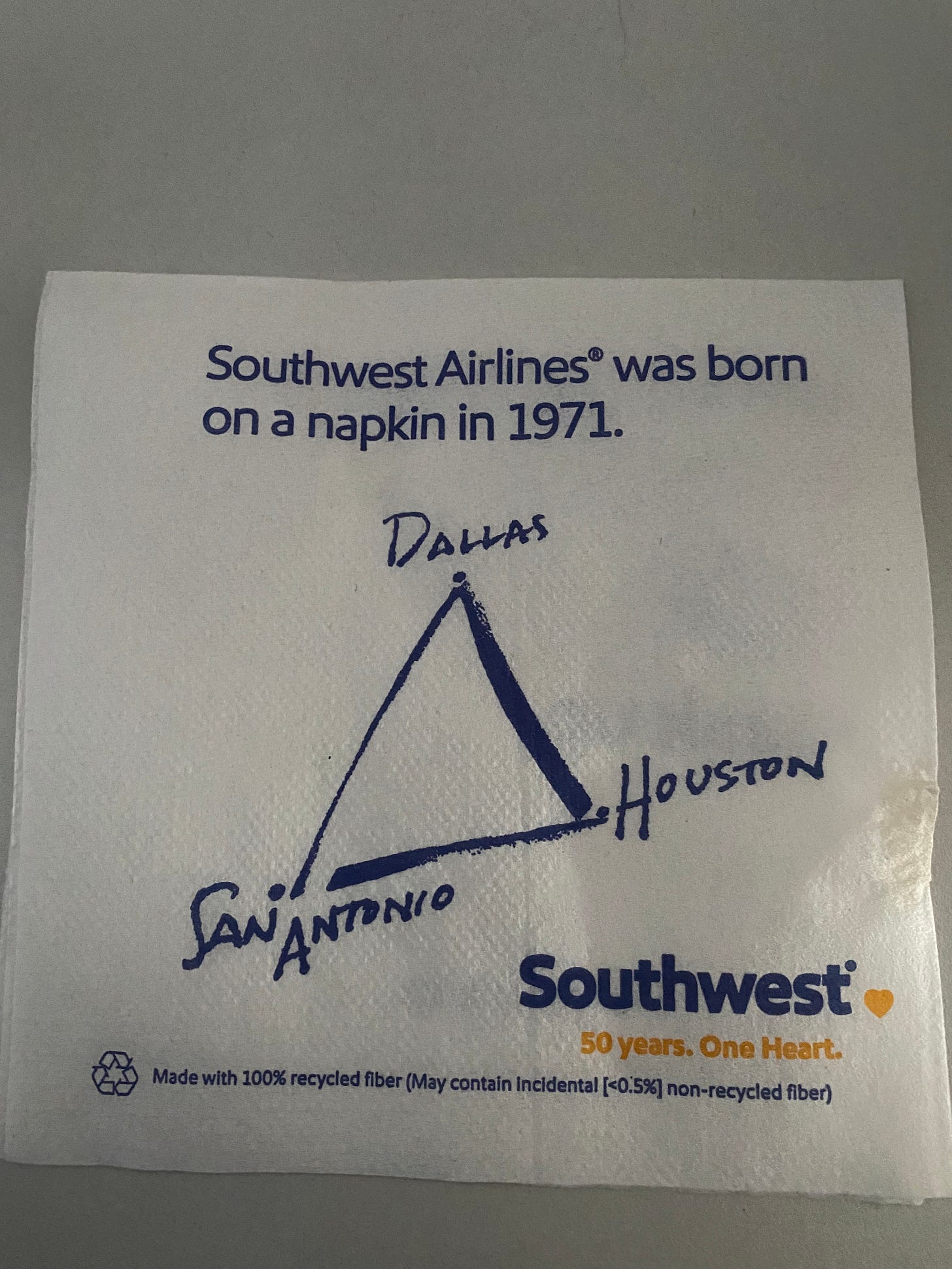Napkin Sketchs
Well I was looking for inspiration to write something and there it was…right on the nappy on my tray table.
Keep it simple stupid = if it doesn’t make sense on a napkin it probably is a load of farse.
I love telling my father in law about companies I’m evaluating. The interactions go something like this: “Michael, I’m looking at this software company that’s using IoT to pick up movements of people inside of space to diagnose how people use the space and then they can sell that data captured to real estate decision makers…” I’ll generally justify it with a few more sentences and explanations. He’ll stare at me and say something like, “how do they make money and how much does it cost to make? How profitable is it? What’s it worth?” I then go on a jog to explain that they’re in high growth mode (not profitable), the biz model is selling sensors + a recurring software fee that operates at a healthy margin and then explain that the company is worth ??x it’s revenue. He then questions me. “But it’s not profitable so why is it worth that?” and around we dance. Me, the young, blissfully naive and overly optimistic 31 year old and him, the 70 year old, wise, successful, deeply experienced business man. He likes hard asset businesses and I like visionary leaders. He likes to see balance sheets, I like to hear stories of a brighter future. He’s the foil of pragmatism to my sweeping excitement. We both have our scars.
Why is it that the smartest people say the least? Maybe it’s because they’ve been burned in the past by the elaborate. Maybe it’s because they realize every breath has value so don’t waste it on superfluous words. Whatever the reason, there’s deep wisdom behind saying less and cutting away the fat of linguistics. He reminds me of that.
Often when you use many big, fanciful words and elaborate explanations, it’s usually a cover up for not knowing all the facts. It can be a rouse to lull the other person into just believing you at face value. I’m guilty of that sometimes! I find myself in these situations after getting pitched a new tech company and then trying to re-explain it to someone else. This is why I like pitching to the wise - because they can strip away the nonsense and ask the real questions. They humble my excitement.
Most tech companies don’t need to have elaborate business models or explanations though. The underlying tech might be insanely complex but when you break it down, it can be explained rather simplistically (Maybe that’s what I ought to start with when explaining to people). In fact here’s what the napkins would show:
Big Tech:
Dropbox - $/month to store your files —> (📁 + ☁️ = 💵)
Google - $ to advertise your business (👁 + 💻 = 💵)
Facebook - $ to advertise your business (👁 + 💻 = 💵)
AWS - $/month to host your website (☁️ + 🕋 = 💵)
Netflix - $/month for movies and shows (🎥 = 💵 )
Salesforce - $/month for human record keeping (💻 + 🕴🕴= 💵)
The companies I’ve spent time with lately:
Maybern - $/month for real estate fund administrator
Measurabl - $/month for energy data collection
5x5 - $/month for internet service
Enaia - $/month for record keeping
So this is a note to self. Next time you try to explain a business to someone, try starting with the napkin approach before going into all the fanciful detail.




